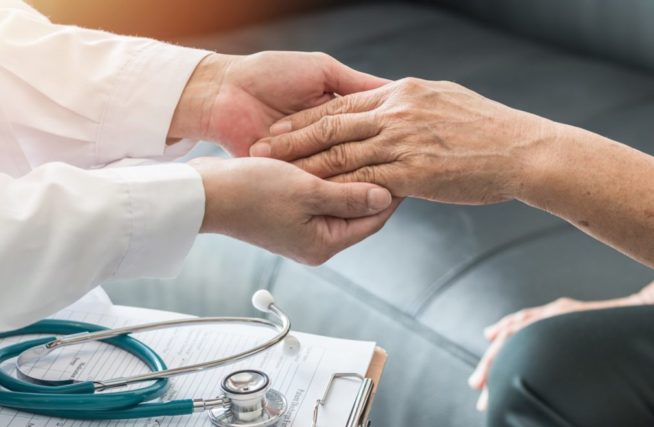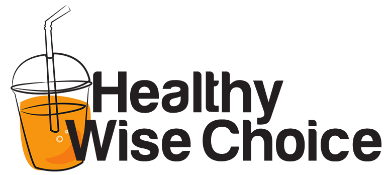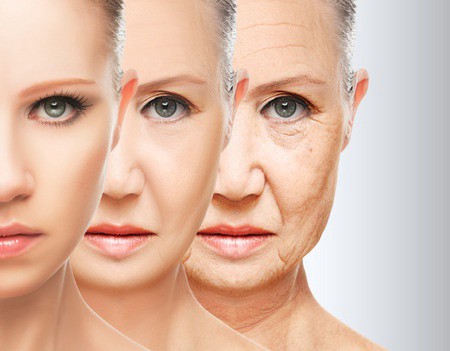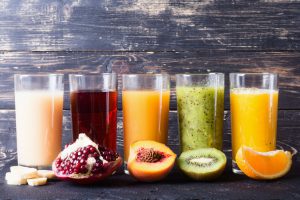Thestudy of aging is called “Gerontology“. The term is derived from the Greek words ‘geron’ meaning old man, and ‘logy’ meaning study. Gerontology discovers the social, biological and psychological changes in people as they age. This is a comparatively new branch of science that has amazingly developed in the last 30 years. The scientists of gerontology are trying to find the single reason behind aging. Their primary question to which gerontologists are trying to find an answer to is, “Is aging naturally programmed into a living body” or “Is it the result of damages that are accumulated over time”?

According to the theories, aging is a complex interaction of genetics, chemistry, psychology and behavior. Through this book, we will have a wider look at the following theories of aging:
1.The human body follows a certain biological timeline and is designed to age with time.
2.Certain predetermined genes switch on and off with time and cause aging.
3.Certain changes in the hormonal structures and amount of secretion control and cause aging.
4. The immune system declines over time for various reasons and leaves the body exposed to diseases.
5. Aging might also be caused by the damages incurred by the environment on our body.
6. Daily wear and tear of cells and tissues in the body cause aging.
7. The faster a living organism metabolizes oxygen, the shorter life it lives.
8. Body process is slowed down due to the accumulation of cross-linked protein that results in aging.
9. Free radicals can damage cells and overshadow their function and cause aging.
10. Genetic change because of cell malfunctioning can also cause aging.
Genetics and Aging
Our genes play an important role in aging. Researchers have found that, the lifespan of certain organisms can almost be doubled by adjusting their genes. Though the aptness of such experiments for human beings is not known, researchers believe that genetics justify about 35% variations in aging among people. They believe that the potential lifespan of an individual is usually determined at the moment of conception. This explains why identical twins, whose genes are exactly the same, have almost the same lifespan.
1. Longevity genes: These are the special beneficiary genes that help a person to live longer. For example, they help in metabolizing cholesterol and thereby reduce the risk of heart disease.
2. Cell Senescence: It is the process that deteriorates the health and function of cells over time.
3. Telomeres: These structures are located at the end of DNA. They protect the chromosomes during cell division and get depleted in the process. After about 50 such cell divisions, these telomeres become so small that they are unable to duplicate any further. This leads to cellular dysfunction and results to aging and death.
4. Stem Cells: These cells can convert themselves into any kind of cell and repair the damages caused by aging.
Biochemistry
Our body unceasingly undergoes complex biochemical reactions, no matter what genes we have inherited. Some of these reactions can cause damage in the body and result in aging. A close study of these complex reactions help researchers in understanding the various changes incurred by the body as it ages. Some important concepts of the theory of biochemistry are;
1. Free Radicals – Eating, drinking and breathing in daily life forms free-radicals or unstable oxygen molecules from the energy production cycles. These molecules attack the structure of cell membranes and create toxic metabolic wastes that disturb DNA, RNA and protein synthesis and damage cells.
2. Protein Cross-Linking – When there is excess glucose in the blood, the glucose molecules are cross-linked to protein. These molecules don’t function properly. When enough cross-linked molecules accumulate in a specific tissue, these tissues stiffen and fail to function efficiently.
3. DNA repair – DNA is the blueprint of the life we inherit from our parents. We are born with a unique code that predetermines the physical and mental functioning of our body and regulate the rate at which we age. As we mature the systems in our body that repair DNA lose their effectiveness that results in aging.
4. Heat shock Proteins – The heat shock proteins are also called stress proteins. They stabilize partially unfolded proteins and control stress.
5. Hormones – The hypothalamus ob the brain controls various chain-reactions and instruct organs and glands to release their hormones. But as we grow old the hypothalamus loses its ability to instruct and the receptors. Therefore the secretion of many hormones decline and lose their effectiveness.
Body Systems
Our body undergoes various changes with age. These changes in the organs and systems in our body adjust and modify our immunity to different diseases. The reasons behind such changes, though necessary, have not yet been understood by researchers. Some important effects of aging on our organs body system are,
1. Heart – As we age, the muscles of the heart thicken along with the thickening of arteries. This lowers the maximum pumping rate of the heart and leads to extremely low diastolic blood pressure.
2. Immune system – As we age, the T-cells in our body take a longer time to rejuvenate. This lowers their capability to function thereby exposing them to diseases.
3. Arteries – The arteries in body tend to harden as we age. This makes it difficult for the heart to pump blood through them.
4. Lungs – As a person ages, the working capacity of the lungs continues decreasing. By the time a person is 70 years old, the functioning ability of the lungs declines by 40%
5. Brain – Some connections between nerve cells appear to be subdued or reduced in efficiency as the brain matures.
6. Kidneys – The efficiency of the kidneys reduce as a person grows old. They become less efficient in cleaning the waste products from blood.
7. Bladder – As a person ages, the tissues decay and the total capacity of the bladder decreases.
8. Body fat and aging – The body fat level keeps on rising as a person matures. However, once he crosses middle age it is customary for body fat to decrease. Also, the fat sinks deeper into the body as we age.
9. Muscle – The strength and tonicity of muscles goes down by about 22% by the time a person reaches the age of 70. Nevertheless the process of losing strength can be slackened by regular exercise.
10. Bone – Our bones start losing consistency at the age of 35. This process can also be slowed down by walking, running and resistance training.
11. Eyes – People usually experience difficulty in seeing minute details after the age of 40.
12. Ear – The ability to hear high frequency sounds decrease as a person matures with age.
Behavioral Factors
We can change the way we age modifying our behavior.
- We can minimize the damage caused by free radicals by eating food that is rich in antioxidants.
- Loss in strength of muscles and bones can be limited by regular exercise.
- Cholesterol levels can be kept under control by brisk-walking and consuming foods rich in fiber. This will slow down the hardening of arteries and protect the heart.
- We can retain the sharpness of brain and keep it active by practicing mental fitness.
- Leading a healthy life and maintaining a healthy calorie-restricted diet can increase life by 40%
- Positive thinking and having a positive approach towards life can also increase life by approximately 7.5 years.
Is Aging Programmed?
According to the programmed theory of aging, growing old is an inherent and inseparable part of biology. It has been innately programmed into our body system and connected to the three main systems of our body – endocrine system, immune system and genetics.
The evidence that supports this theory is that there is not much variation in the lifespan of a certain species. This implies that, we are all programmed to age and die after a certain predetermined period of time.
Is Body a Machine?
Though human body is not a machine, we often tend to compare them to each other. Unlike a machine it is not possible for us to manually activate or deactivate a muscle or a system in our body according to our wish. Moreover, human body constantly repairs and replaces cells accordingly so that every 7 years about 90% cells in our body are rejuvenated. The human body is an amazing and vigorous system. We can understand its function only if we forget machines and concentrate on living beings.
Aging is About Evolution, Not Biology
Evolution of aging aims to explain why all living beings weaken and die with age. The question most frequently arises here is – “should the human body “wear out?” It has already been declared that, the human body can recreate and regenerate itself. Time is possibly a major factor that plays an important role in maturing the human body. But there must be additional factors at play that cause the unavoidable consequences of aging. This question leads us to the programmed theory of aging that considers aging and death to be two indispensable parts of evolution but disagree to accept it as a part of biology. Every species require a genetic capacity for aging and death otherwise it would not be forced to replicate in order to exist. Species would simply continue existing till something wiped them out completely. If biological individuals have an eternal existence, there would be no evolution at all.
Programmed Aging
According to this theory, Aging is innately programmed in an organism and is not the outcome of environmental factor or wear and tear. Therefore, aging and death are not the outcome of any kind of exposure to environment but is a programmed response to an instinctive and indispensable part of genetics. The evidence shows that there is not much of variation in lifespan among organisms of the same species. Elephants die around the age of 70, spider monkeys die around 25, and human beings die around the age of 80. Though modifications in diet and lifestyle can increase the quality an individual’s life span but general lifespan within species is moderately invariant. In other words, proper nutrition and healthy habits stimulates a high quality of life but does not promise quantity of life. If aging were due to “wear and tear” there would be to a greater extent variation in lifespan within the same species.
How do Hormones affect Aging?
The most significant aspect of aging are the modifications brought about in the body by the endocrine system. Many hormones decline and become less effective as we age. The most important hormonal changes are the ones that take place in estrogen before and after menopause in women. Testosterone levels also decrease in men, but not as drastically as estrogen in women and never dropping below “normal” levels.
In order to establish and prove this theory, researchers removed the pituitary gland of mice and replaced it with a recognized to substitute of pituitary. It was found that the mouse without the pituitary gland lived longer than the mouse with the gland. It is therefore perceptible that the pituitary gland must also excrete another, unidentified, hormone that negatively affects aging. Hormonal changes are a significant part of aging. But it does not mean that hormone replacement in human beings will safely add to an individual’s lifespan.
The pituitary gland produces natural HGH that is naturally stimulated by sleep and strenuous exercise. Though celluloid HGH is used in the treatment of dwarfism, not adequate research has been conducted to determine if it is risk-free to be used as an anti-aging agent.
Is the Immune System to Blame?
The rate of aging is mostly mastered by the immune system. The first body system to be compromise by normal aging is the Immune system. The master gland of the immune system, our Thymus, begins to shrink quickly with the onset of puberty. By the time we turn 40, it is only 10 to 15 per cent of the size that it was at age 11. As a result there is a decline in the production of hormones in our body.
The immune system plays a crucial role in keeping our bodies fit. Not only does it protect us against viruses and bacteria, it also helps to identify and get rid of cancer cells and toxins. Since the thymus deteriorates early, the immunity of our body is thrown out of place and the potential for elements like virus and bacteria to stimulate harm in our bodies increases.
Live Fast Die Young
The rate-of-living theory is presently the most broadly accepted explanation of aging. In ancient times, people believed that the human body degenerates in direct proportion to its use. Scientists conceive that the swiftness at which an organism breaks down oxygen is a better and precise measurement. Creatures with faster oxygen metabolic process die younger. Little mammals with rapid heartbeats metabolize oxygen quickly and have shorter lives. Tortoises, on the other hand, metabolize oxygen very slowly and have longer lives.
The rate-of-living theory of aging though helpful is not totally adequate in explaining the maximum lifetime of an organism. It has recently been discovered that the fatty acid composition of cell membranes alter consistently between species, and thereby creates variation in their metabolic rate. When the association between metabolic rate and life span was first proposed a century ago, it was not acknowledged that membrane composition varies between species.
Scientists genetically engineered mice with a defect in the hypothalamus part of the brain in order to overexert it. Since the hypothalamus of the mice was close to the temperature control centre, its brain thought the body was overheating and brought down the core temperature thereby slowing down its metabolic rate. However we do not yet know why the mice lived longer.
What we would like to know, from longevity point of view is, what decides which individuals within a species live the longest. There actually is no information that slowing down the metabolism extends human life. As a matter of fact, a slower metabolic process would put individual at risk for obesity and additional nutritional-related illnesses
Sugar and Aging Process
As we heat onions or toast bread, the sugar molecules bond to protein molecules. When this happens, a series of chemical reaction called glycation occur which results in protein molecules bonding to one another.
The same Happens in our Body but The process here is practically slower and complicated. Over time more and more protein molecules are cross-linked. These molecules do not function properly. When enough cross-linked molecules gather in a particular tissue such as cartilage, lungs, arteries and tendons, the tissues stiffen and do not function with enough efficiency this stiffening or rigidification is a symptom of growing old.
Cataracts, for example, are the rigidification of our eyes’ lenses.
Although we cannot stop cross-linking, we can unquestionably slow it down. Researchers conceive that if the density of sugar in the blood is high, more cross-linking occurs. We could benefit from keeping our blood sugar from rising by avoiding foods with high glucose levels. Foods such as sweetened sodas and juices release sugar into the body quickly.
Free Radicals and Aging
Free radicals are a by-product of convention cell function. They are atoms or groups of atoms with free electrons that are formed when oxygen reacts with certain molecules. These highly reactive free electrons begin a chain of chemical reactions with significant cellular components such as DNA, or the cell membrane. This deteriorates the Cells function or even leads to the death of these cells. The body has its inbuilt defense system of antioxidants to prevent or fight the damages incurred by free radicals.
Antioxidants – The Free Radical Sponge
Antioxidants are molecules which can safely interact with free radicals and terminate the chain reaction before life-sustaining molecules are damaged. Though there are various enzyme systems within the body that clean free radicals, the principle antioxidants are vitamin E, beta-carotene, and vitamin C. Additionally, selenium, a trace metal that is compulsory for appropriate function of one of the body’s antioxidant enzyme systems, is also occasionally included in the category of antioxidants.
The body cannot construct these micronutrients so it is essential that they must be catered in the diet. Antioxidants are largely found in plants. We can get the best antioxidant benefits by consuming real plants and other foods.
Several damages that take place as our body are stimulated by free radicals. These damages thus induced are known to accumulate and cause aging. Increasing the quantity of antioxidants in the diet can however slow down the consequences of aging. It is presumed that free radicals play an important role in the equation of aging.
Genetic Aging Theory
According to the genetic theory of aging, the lifetime of an individual is mostly influenced by the genes we inherit. The theory is entirely concerned with the genes in sperm and egg cells. These genes are passed down from generation to generation. Our potential age is thus chiefly decided at the moment of conception. Somatic mutations take place in the genes after we inherit them, but cannot be passed down to the offspring. Although we have evidence of gene mutations inducing damage and death of cells, it cannot be counted as the most significant factor in aging.
Mutation and Aging
A crucial part of aging is decided by what happens to our genes after we inherit them. Commencing at time of conception, our body’s cells multiply continually. Each time a cell splits; some of the genes are imitated incorrectly. This is called a mutation. Exposure to toxins, radiation or ultraviolet rays can also cause mutations in our genes.
Though our body can rectify or demolish most of the chromosomal mutation, it cannot do away with them altogether. Eventually the mutated cells compile and replicate themselves and lead in problems in the functioning of the body that are associated with aging.











